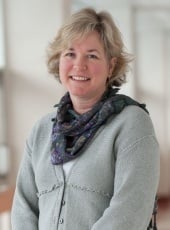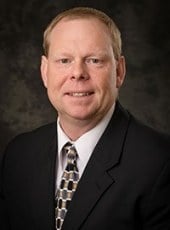Are you interested in taking your innovative idea, technology, or process commercial? Michigan Tech is an affiliate with the Great Lakes Region NSF I-Corps Hub. Interested parties may participate in events throughout the region or at Tech. Workshops will be available each semester. Check out the NSF I-Corps Hub Great Lakes Region calendar for event opportunities.
Entrepreneurially minded graduate and undergraduate students, faculty, staff, alumni, and local community teams are invited to join the next Great Lakes Region NSF I-Corps Hub cohort. The site program offered through Michigan Tech is structured around the lean startup teaching methods and principles used by NSF's National I-Corps Program. The purpose of the NSF-funded I-Corps Hub Program is to foster entrepreneurship that will lead to the commercialization of technology and to develop team readiness for the teams going on to the I-Corps National I-Corps program.
Michigan Tech and affiliate institution teams who complete the five-week workshop and customer discovery process may be eligible to apply for the following opportunities:
- Mini-grant funding for continued customer discovery
- NSF's National I-Corps program which includes $50,000 in funding and additional training
Participation in the program can lead to qualification for research and other funding from several granting agencies, including the NSF I-Corps and SBIR/STTR/PFI programs and various state and regional programs. Past participants have reported that they saved time and money by better understanding potential applications of their technology, experienced improved engagement with teams, and improved their ability to receive add-on funding.
NOTE - Applications for the Fall 2024 workshops will be opening soon.
Spring 2024 Michigan Tech I-Corps Site program workshops:
- 1/29 Week 1: 4:00-6:30 pm
- 2/5 Week 2: 4:00-6:30 pm
- 2/19 Week 3: 4:00-6:30 pm
- 3/4 Week 4: 4:00-6:30 pm
Note: Participants are required to attend all workshops.
The I-Corps curriculum provides real-world, hands-on, immersive learning about what
it takes to successfully transfer knowledge into products and processes that benefit
society. It’s not about how to write a research paper, a business plan, or NSF proposal.
The end result is not a publication, a deck of slides, or even a scientific discovery.
Instead, the entire I-Corps team will be engaged in talking to industry customers
and competitors and encountering the chaos and uncertainty of creating successful
innovations. Getting out of the laboratory/university is what the effort is all about.
This curriculum requires full participation from the entire I-Corps team. Each member
must commit to in-depth preparation, attendance at the lectures, workshops, and WebEx
conference calls. If you cannot commit a minimum of 5 hours per week, the Michigan
Tech I-Corps Site program is not for you.
I-Corps is perfect for early-stage projects looking to assess a commercial opportunity.
This program works equally well for university researchers that are in the process
or have filed an invention disclosure, as well as SBIR/STTR Phase I awardees, or companies
looking to spin-out new technologies.
- An opportunity to see the real world impacts of your research and technology
- Discover a market for your technology that you had not previously considered
- Your network will exponentially as you have priceless contact with teachers, investors customers and inventors
- Increased skills; you will learn the language of business and about the 9 fundamental principles of a business model
- Ability to identify increased commercial potential for your technologies
- Increased probability of grant success
- Quicker elimination of non-commercial research tracks
- Increase your visibility within your institution
- You will save years and money by accelerating your understanding
- You will help contribute to an innovation ecosystem that will change the future of the State of Michigan and the Midwest
Participants in the I-Corps Site Program will be expected to commit at least 3-5 hours per person per week. During this time they will concentrate on:
- market research
- customer discovery
- other commercialization-focused activities
It is important participants are interested in gaining new knowledge from the program and not just receiving the I-Corps Site grant funding. Once accepted, participants will be required to attend the following:
- kick-off event
- two training sessions
- mentor meetings
- final Presentation Day
Participants will show how their business ideas have developed over the course of the workshop at the final Presentation Day
Participants will also be expected to schedule at least two meetings with members of the teaching team. You can schedule a half-hour slot with a specific teaching team member by clicking on their Office Hours below.
All current undergraduate and graduate students, doctoral students, post-doctoral researchers, alumni, administrative staff, and faculty are eligible to apply. It is required that participants apply to this program as a team of at least two people. We do not recommend that teams apply with more than four participants. Typically, teams consist of:
- At least one scientific or technological expert who is responsible for the team's idea ("the scientific leader")
- At least one student , alumni, or post-doctoral fellow interested in conducting entrepreneurial research and directing group efforts ("the entrepreneurial leader"). The entrepreneurial leader may or may not have prior business experience, but is committed to leading or organizing team activities during the I-Corps Site Program.
Husky Innovate can help facilitate team formation in order to match people with different experiences onto teams. For more information on team formation, please contact Lisa Casper (lcasper@mtu.edu).

Mary Raber, Ph.D, MBA, is a Professor of Practice at Michigan Technological University and enjoys her multiple roles as Chair of the Engineering Fundamentals department in the College of Engineering, and as Chief Doing Officer of IDEA hub (Michigan Tech’s collaborative working group for educational innovation). Mary is a design-thinking and innovation enthusiast and loves to help others embrace the tools and mindsets of innovation to effect positive change. After a 15-year career in the automotive industry, she joined Michigan Tech to lead the implementation and growth of the highly distinctive undergraduate Enterprise Program. Raber facilitates learning in leadership, human-centered design and lean start-up with a focus on engineering education. She is working on developing a start-up to help bring her passion for innovative teaching and learning to others.

Jim Baker, Ph.D, represents the Office of Innovation and Commercialization under the Vice President for Research at Michigan Tech. Jim has over 20 years of experience in early stage technology commercialization and in negotiating agreements with private companies, public funding agencies, and others related to research, development and commercialization. He is a Patent Agent with a license to prosecute patent applications in front of the United States Patent and Trademark Office and is experienced in many aspects of intellectual property and proprietary protection. He has been part of startup technology companies in the healthcare, consumer products, technology development service sectors and is co-owner of an established small UP-based outdoor goods manufacturing company.

Jonathan Leinonen is a lecturer in the College of Business and also co-director of Husky Innovate. Jon has worked with numerous innovation-based companies to launch products and raise early stage capital. He specializes in agile resource provision toward strategic, collaborative benefits through direct involvement across stakeholders including universities, non-profits, government and private companies, leading various roles with them.

Lisa Casper earned her MBA from the University of Oregon. She completed her undergraduate BS studies at Embry-Riddle Aeronautical University with a degree in Aeronautical Science as well as earning flight instructor and commercial aviation certificated and her multiengine and instrument ratings. She worked as a Systems Engineer supporting project management for science and engineering projects at both Lawrence Berkeley National Laboratory and Lockheed Martin Missiles and Space. Most recently she worked as an Entrepreneurship Instructor and Advisor for students at Finlandia University.